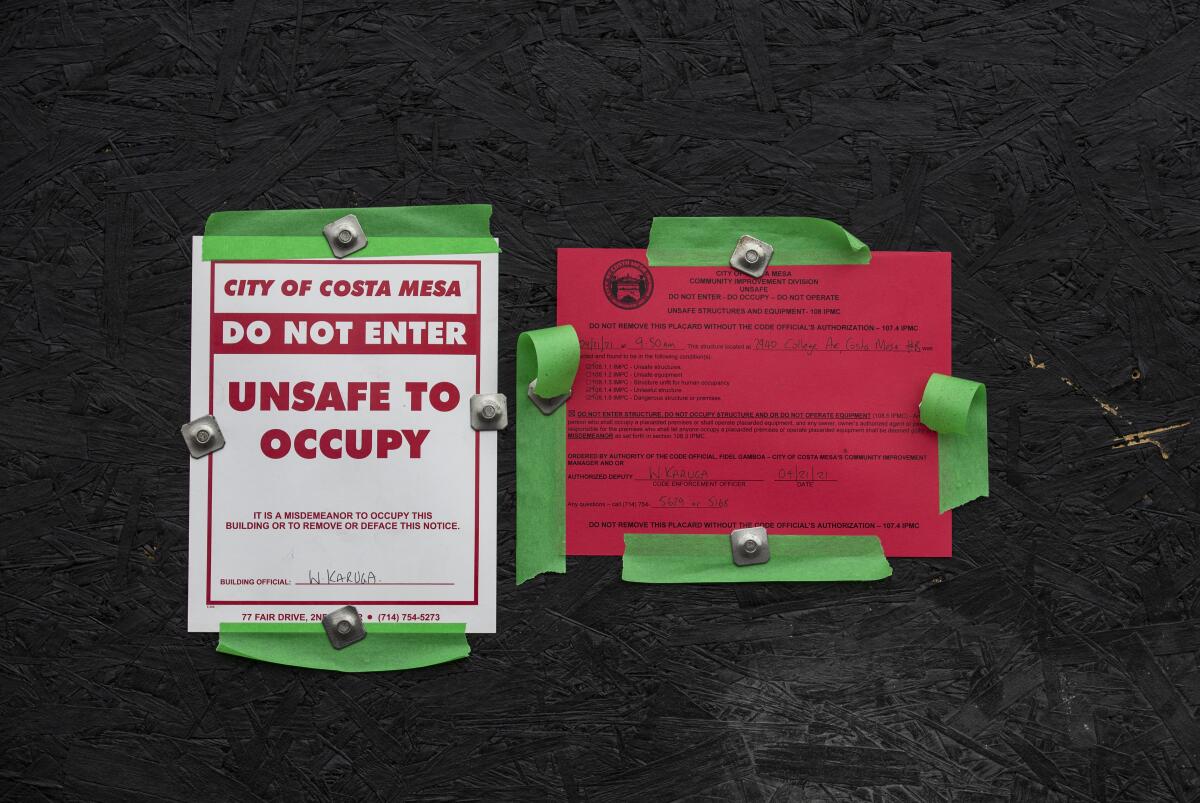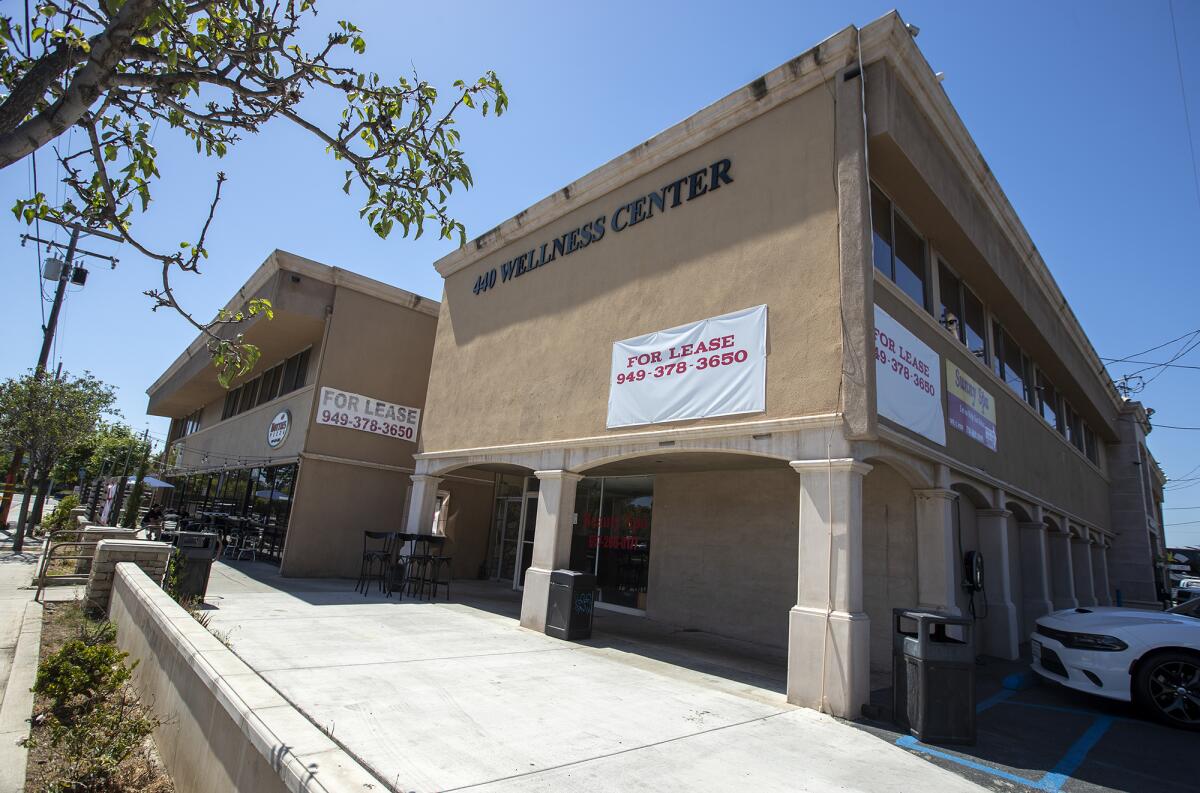Costa Mesa to place tax liens on properties where illegal dispensaries have unpaid fines

After issuing code violation notices and citations to illegal cannabis dispensaries and property owners — a practice that, in recent years, has racked up $122,475 in unpaid fines — the city of Costa Mesa is upping its nuisance abatement game.
City Council members this week passed a resolution to place delinquent citations on the county’s property tax roll as a lien against offending properties, meaning owners would have unpaid fines added to their property tax bills as a special assessment.
Failure to pay the tax for three consecutive years would allow the county’s tax collector to sell the delinquent property.
“We’ve used code enforcement, we’ve partnered with the DA. We’ve done as much as we can that was currently on the books,” Mayor Pro Tem Andrea Marr said of the move in a July 20 council meeting. “This is an attempt by staff to give us another tool in [our] toolbox.”

Finance Director Carol Molina explained when businesses are identified as operating without a license or violating the city’s building and municipal codes, the business owner and owner of the site are fined and given 30 days to request an administrative hearing to resolve issues.
If no action occurs, the matter goes to the Finance Department, and those given citations are allowed another 30 days to correct the problem and pay fines, which may include additional delinquency fees. At that point, the city may request the fees be added to the tax roll, but first the city council must pass a resolution — the aim of Tuesday’s discussion.
A list of delinquent dispensaries and property owners indicates 58 outstanding citations on 12 properties has so far accrued the $122,475 in uncollected fines.
“These citations are older than 60 days and have greater than $250 fees and fines,” Molina told the council. “The citees have been provided multiple opportunities to pay these fines and directly contact Finance Department staff to handle these citations.”
Molina and City Atty. Kimberly Hall Barlow assured any property owner unaware an illegal dispensary is operating on his or her site is given ample opportunity to correct the violation, through eviction, issuance of a notice to quit and other abatement efforts.
I just don’t think that’s a fair way to treat a citizen and a landowner in Costa Mesa.
— Ken Lawson, Costa Mesa property owner
Some property owners, however, claim they never received notice of escalating violations or said they paid the fines and continued receiving notices because errant tenants hadn’t paid.
Ken Lawson owns a Newport Boulevard property that has leased space to the High Tide Church, a dispensary that’s amassed $25,250 in citations. He said he hired a lawyer to evict the tenant, a process that took two years, before selling the property in March.
Last week, however, Lawson got a citation from the city for the unpaid fines dating back two years. He said it was the first communication he’d received.
“I’ve never ignored anything from the city,” he said. “I just don’t think that’s a fair way to treat a citizen and a landowner in Costa Mesa.”
Dennis D’Alessio, who’s been engaged in longstanding litigation with the city over a Fair Drive property reportedly home to several illicit businesses, including a dispensary called the Holy Church, said the city’s actions are unfair.
“We rented to these businesses — they had a ministry license, they had their Bibles. I evicted the tenant six months ago, and I got a letter today saying the tenants haven’t paid their fines,” D’Alessio addressed the council.
“I spent a lot of money evicting them, and now I’m supposed to pay their bill?” he continued. “Is the landlord responsible for making their tenant has a business license, that they pay their taxes and do all the things appropriately?”
The council held firm, passing a resolution to certify the special assessments in a 7-0 vote.
“We’re about to embark on a legal cannabis dispensary phase of our city,” Marr said. “In order for that to be successful, and for us to do what we said we were going to do as part of allowing legal dispensaries … we’ve got to shut down the ones that are not operating legally.”
All the latest on Orange County from Orange County.
Get our free TimesOC newsletter.
You may occasionally receive promotional content from the Daily Pilot.




